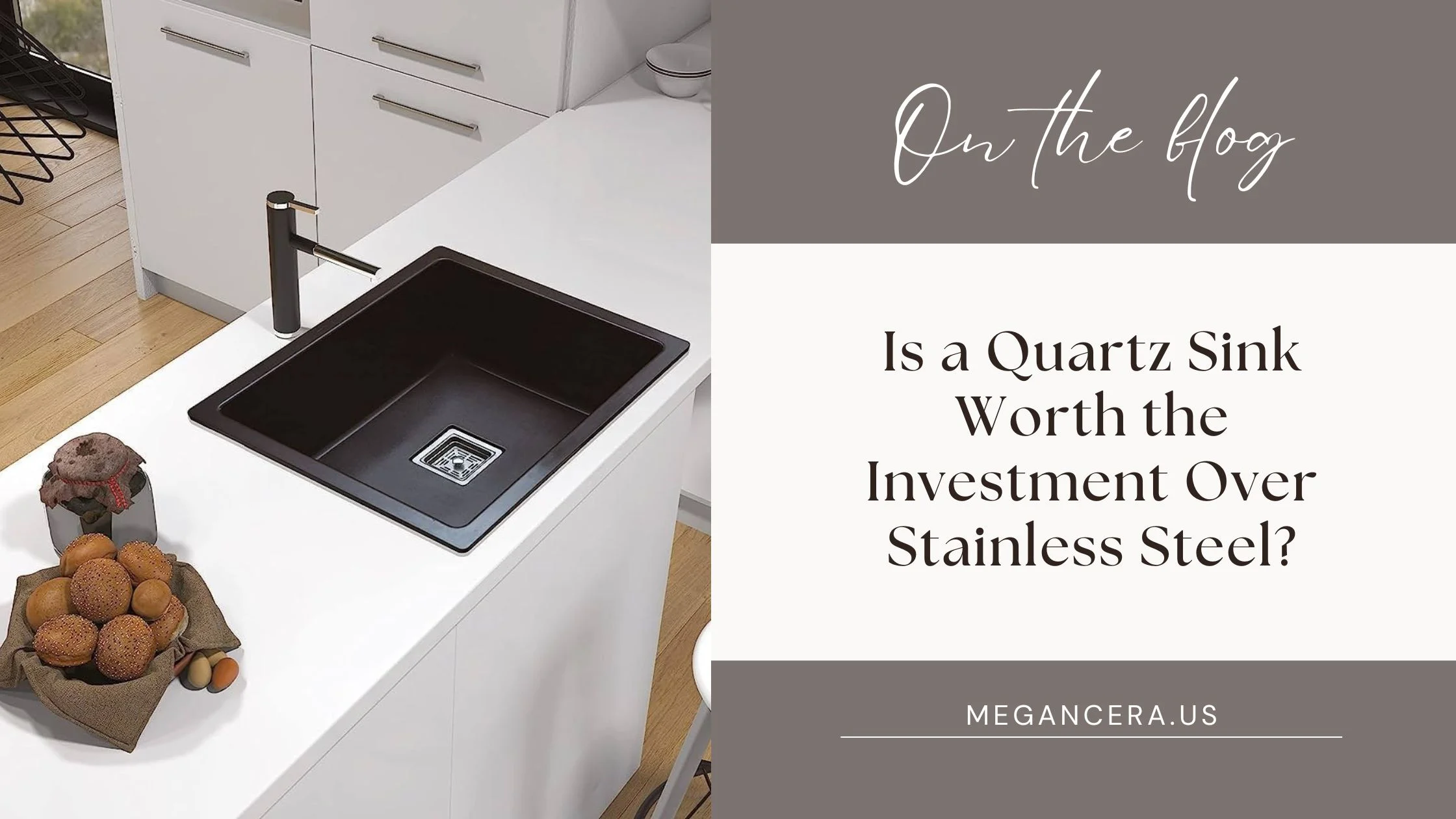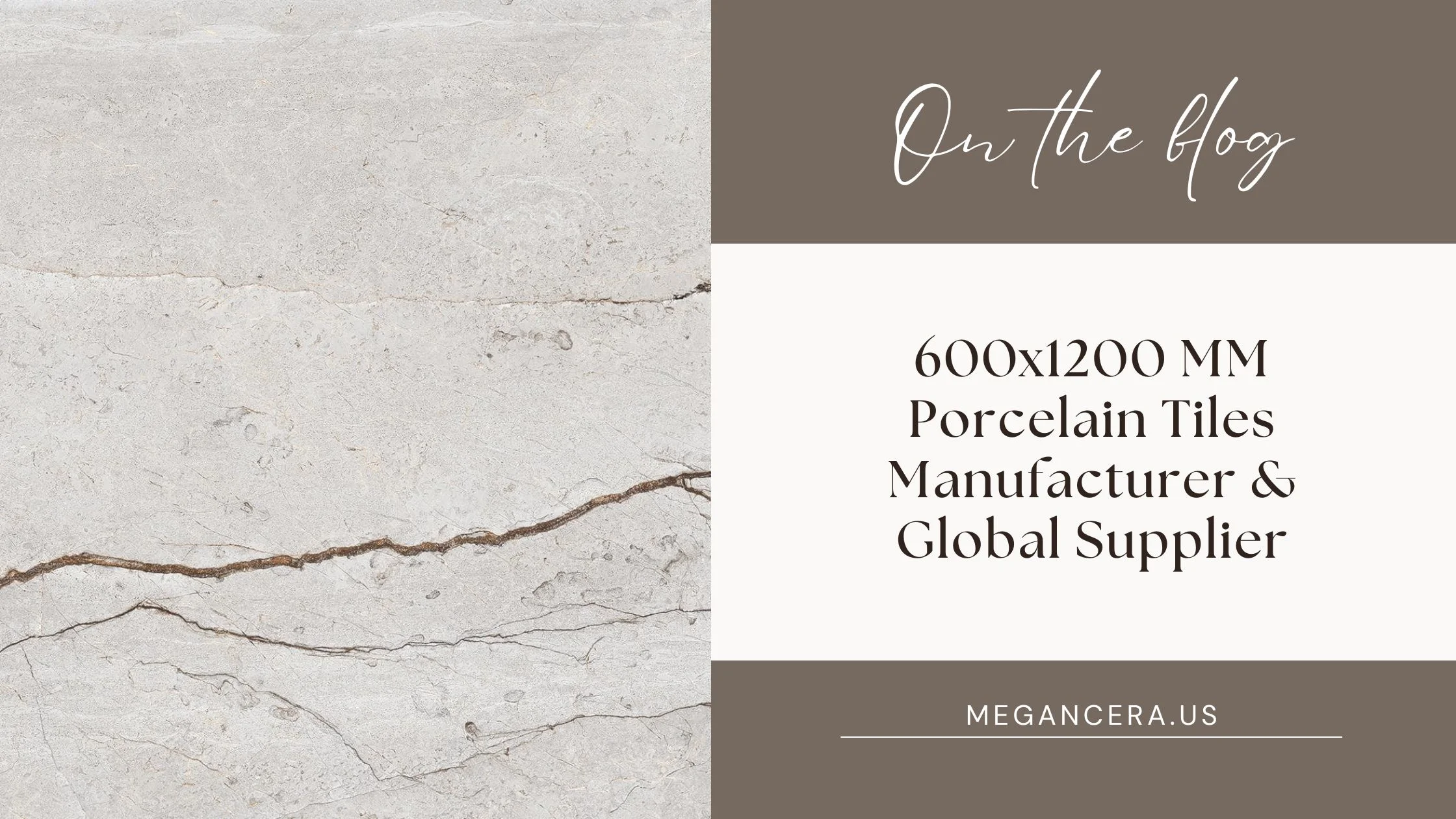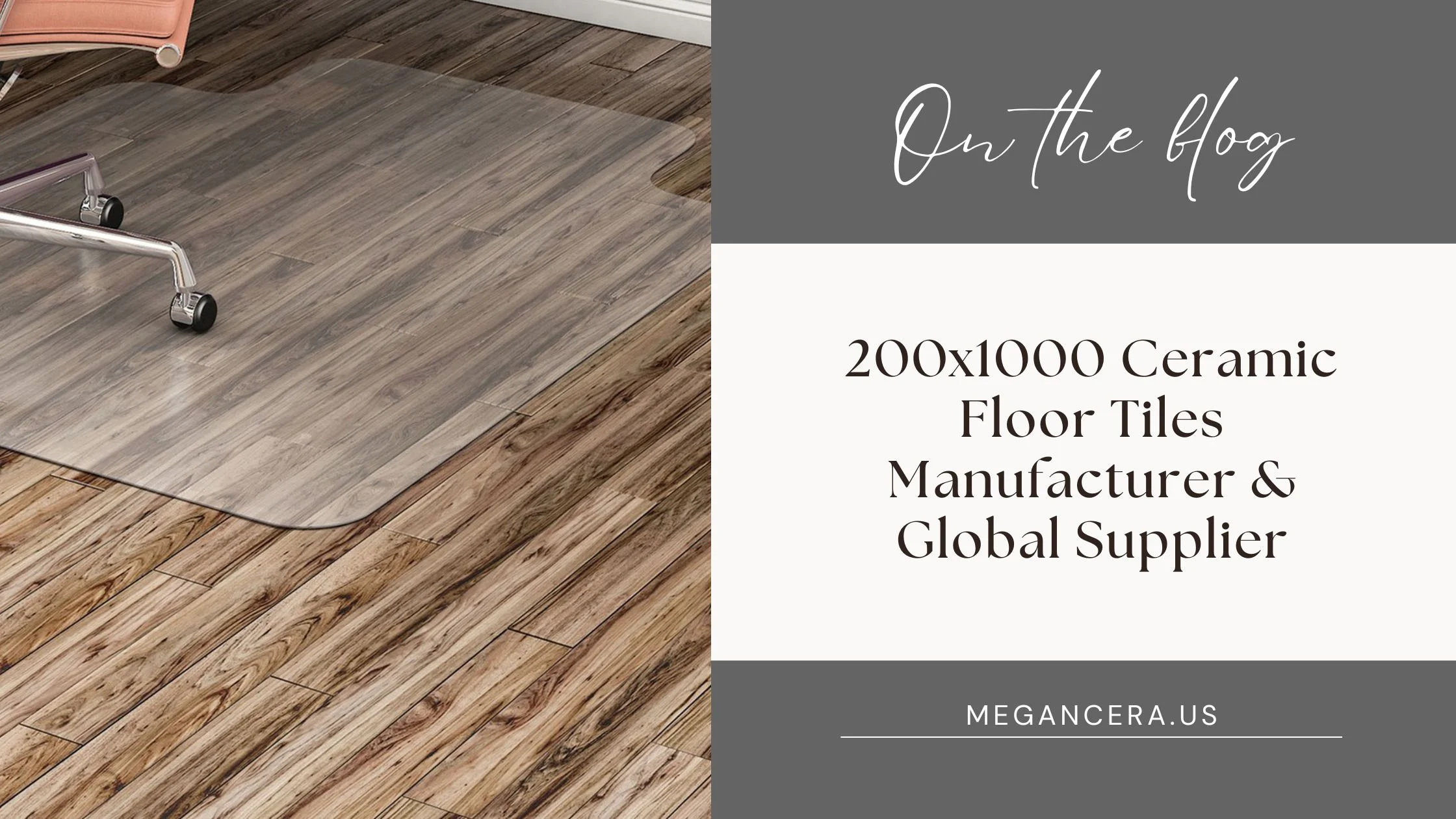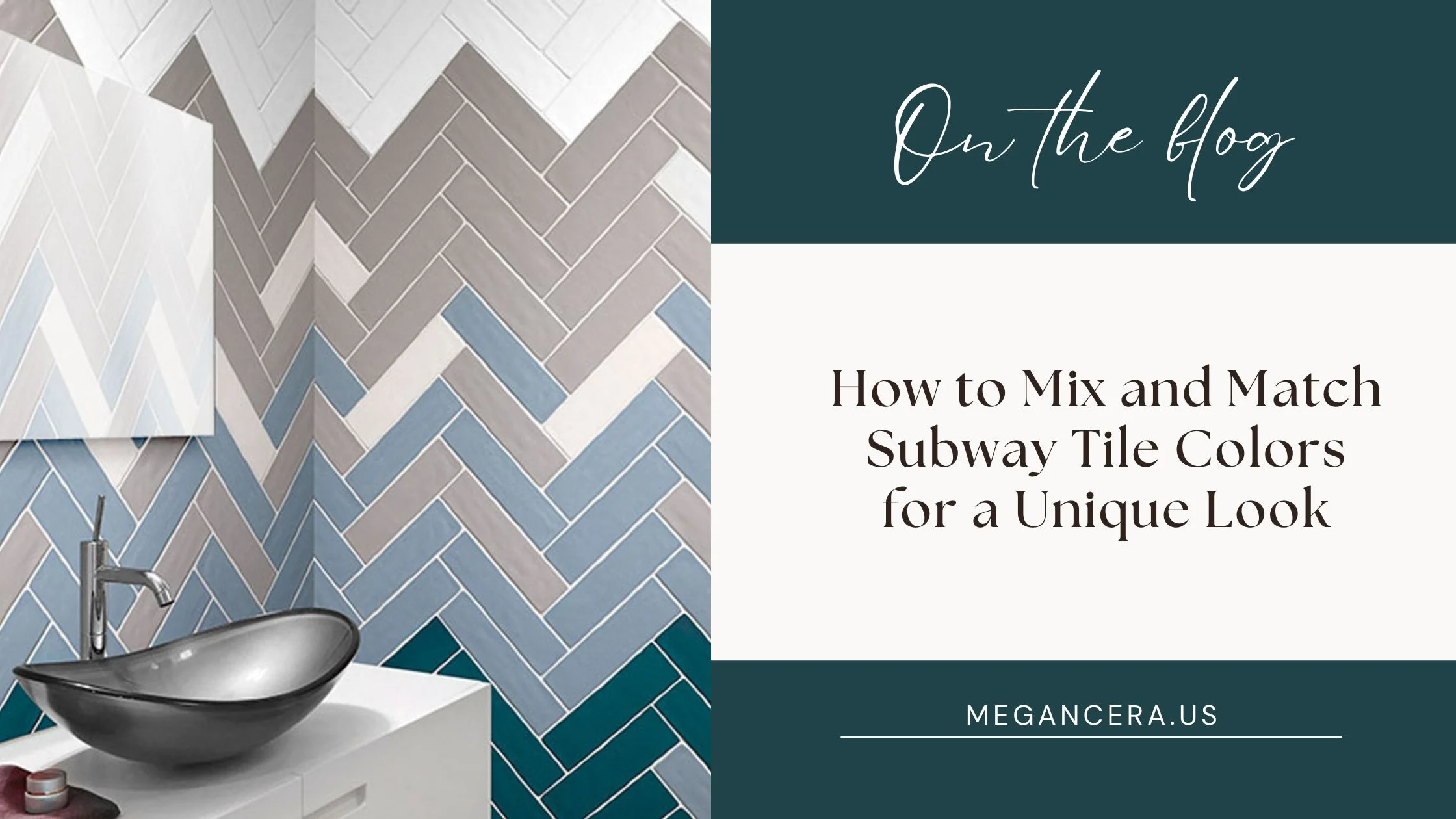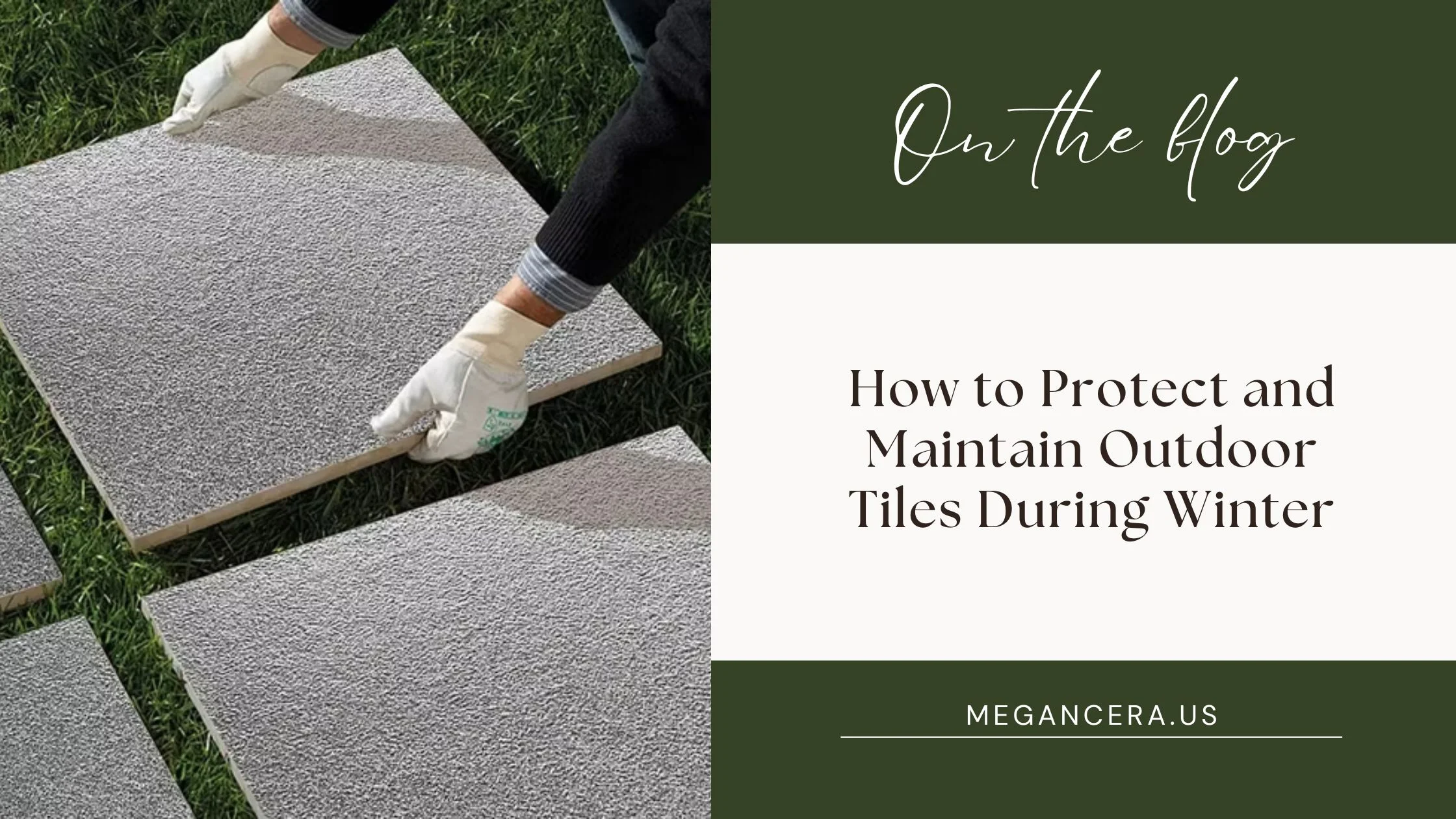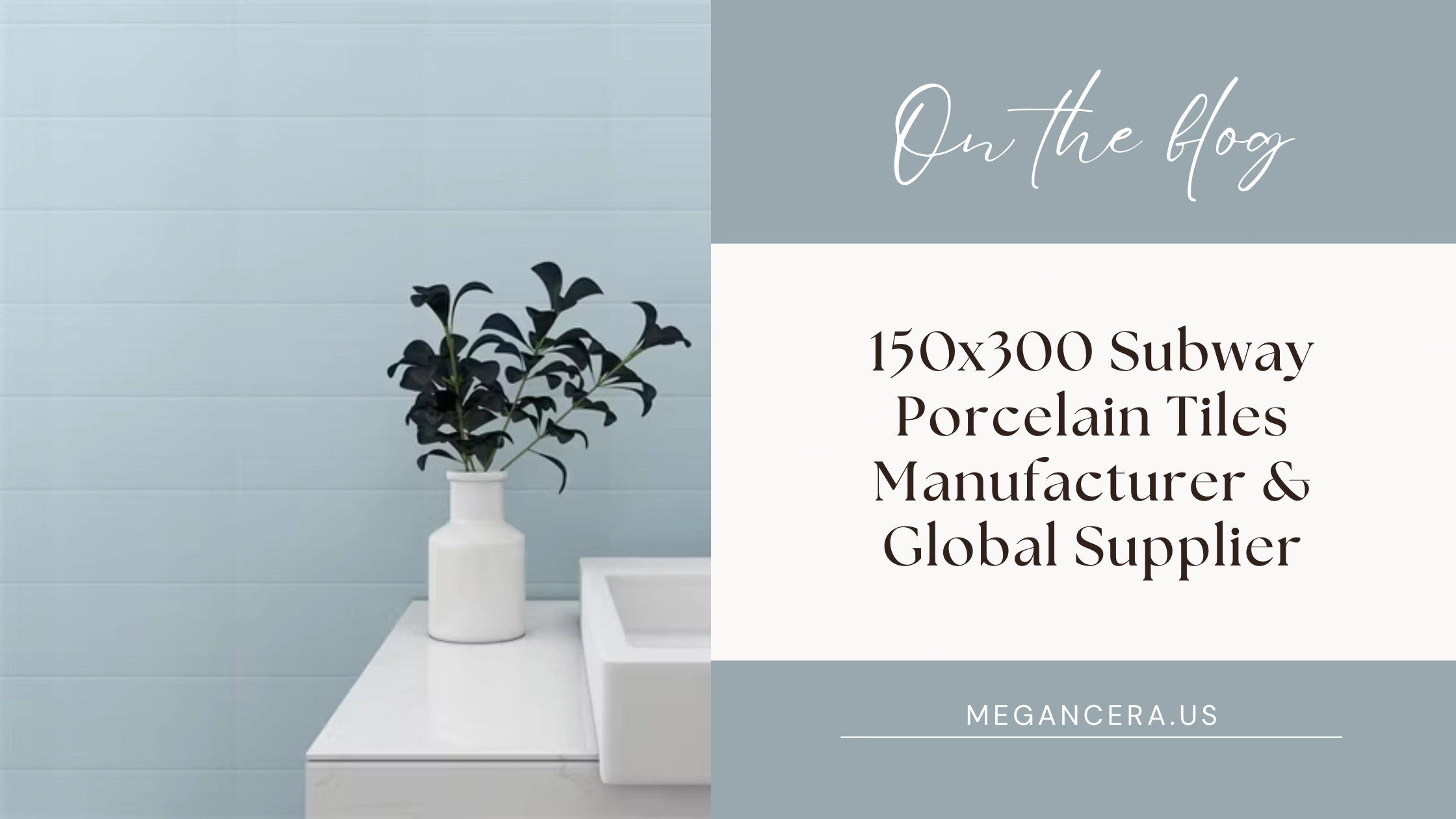Connect With Our Team
Blog: Is a Quartz Sink Worth the Investment Over Stainless Steel?
Choosing a kitchen sink can be a challenging decision. Two of the most popular options are quartz and stainless steel, each with distinct advantages and disadvantages. While quartz sinks offer a modern aesthetic and durability, stainless steel sinks are known for their affordability and versatility. This guide will dive into each sink type’s features, benefits, and ideal applications to help you decide which is the better investment for your kitchen.
Understanding Quartz and Stainless Steel Sinks
What is a Quartz Sink?
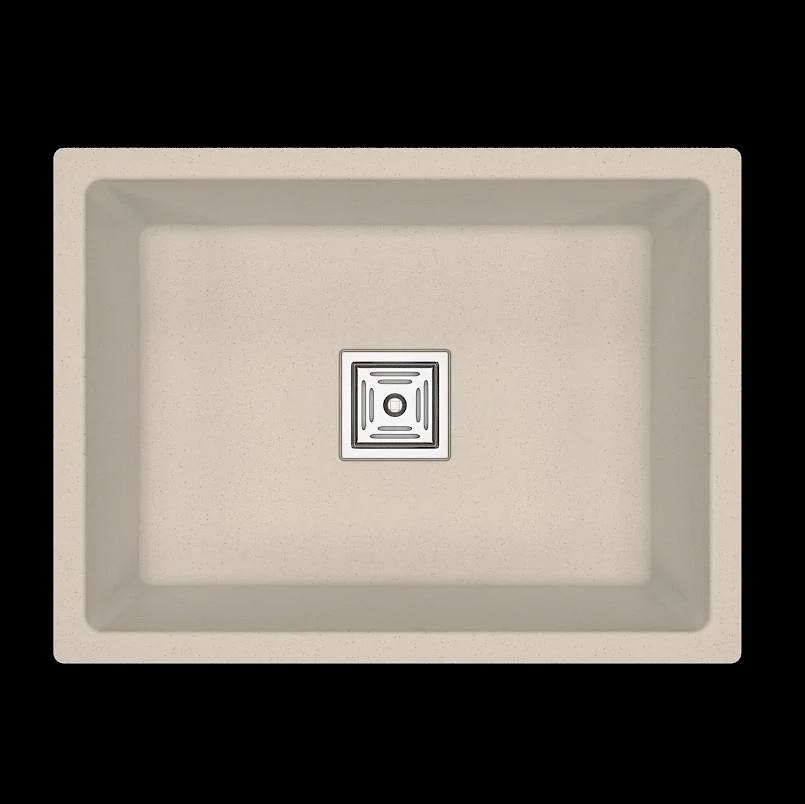
Quartz sinks are made from a composite material that merges natural quartz stone with resin. The outcome is often a smooth, matte finish that boasts very good durability and great stain resistance. Quartz composite sinks range in color from very pale shades to darkest tones, thereby fitting various kitchen styles, from modern to traditional. Its strength, added to the ease of maintenance, makes it attractive for people who want a decent and high-style sink that requires little maintenance.
What is a Stainless Steel Sink?
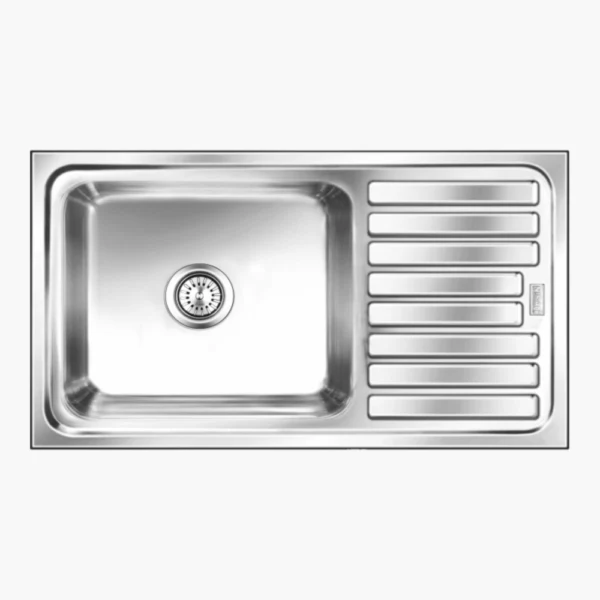
Stainless steel sinks are high-grade steel, durable, and affordable; they accommodate various tastes in kitchens. Stainless steel sinks highly resist dents and rust, are versatile, and are easy to clean. They are available in different gauges, or thickness levels, making them durable and controlling the noise level for both residential and commercial kitchens.
Quartz Sinks vs Stainless Steel Sinks
1. Material Composition and Finish
Quartz Kitchen Sink: Quartz sinks consist of a blend of crushed quartz stone, resins, and pigments. A stone-like finish in a wide variety of colors and patterns provides a natural look with a sense of luxury.
Stainless Steel Kitchen Sink: The common alloy composition for stainless steel sinks is basically iron, chromium (10% or more), and nickel. Sleek and modern in design, with a shiny or brushed finish-suitable for modern, chic designs.
Indeed, stainless steel may be incorporated into a wide variety of styles; however, quartz offers a broader scope of color options for a truly customized kitchen design.
2. Durability and Scratch Resistance
Quartz Kitchen Sink: Quartz sinks are very resistant to scratches and chips because of their hard stone-like surface. They resist heavyweight tasks in the kitchen without denting.
Stainless Steel Kitchen Sink: Stainless steel sinks are also durable but tend to scratch more, especially if they are made out of thinner material. However, they are resilient to dents and rust, which increases their overall life span.
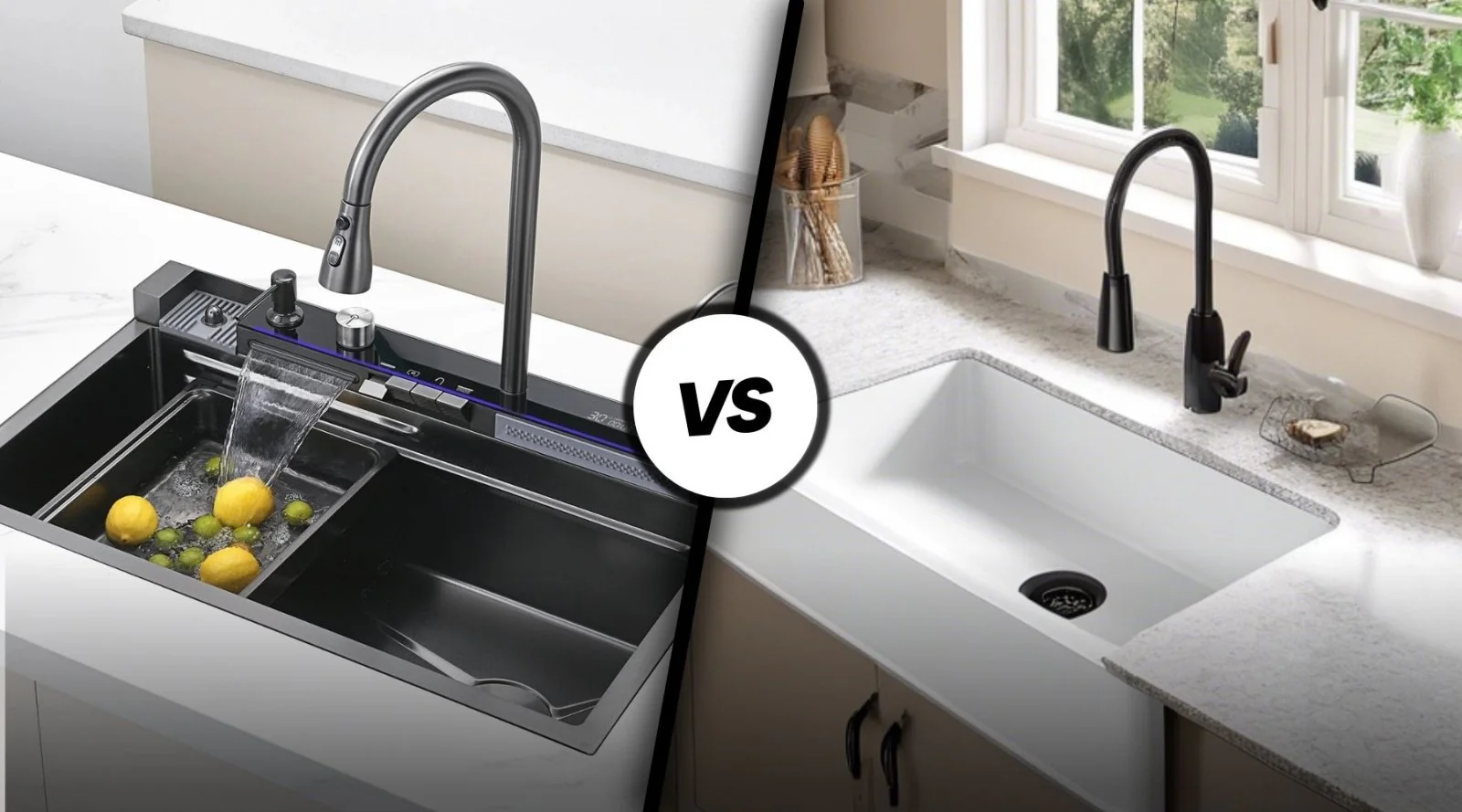
3. Heat Resistance
Quartz Kitchen Sink: Quartz sinks are resistant to heat up until about 535°F. They generally will not get damaged by most cooking temperatures; however, excessive heat can result in discoloration.
Stainless Steel Kitchen Sink: Stainless steel can resist high temperatures without warping or damage. Though it is resistant to heat, it can also show water marks or stains resulting from boiling water; usually, these are easy to clean.
4. Stain and Maintenance Requirements
Quartz Kitchen Sink: Quartz sinks are nonporous; hence, they offer extreme resistance to the staining and growth of bacteria. They are easily cleanable using mild soap and water and don't require harsh chemicals.
Stainless Steel Kitchen Sink: Stainless steel sinks clean easily as well, but they may show water spots or fingerprints that should be regularly cleaned. The polishing keeps them new in appearance, but the maintenance could be a tad higher when compared to quartz.
5. Noise Levels
Quartz Kitchen Sinks: Quartz sinks, due to their density, have the inherent quality of absorbing sound, making less noise during dishwashing, while running water creates minimal noise.
Stainless Steel Kitchen Sinks: Stainless steel tends to be noisy, most specifically with thinner gauges. Thicker sinks or those with sound deadening pads reduce noise remarkably, thus making them much quieter than their older counterparts.
6. Aesthetic Appeal
Quartz Kitchen Sink: Quartz sinks come in a range of colors and finishes from sleek black to stone grey and other earth tones. They add a high-end, luxurious feel to kitchens, especially in modern or minimalist kitchen styles.
Stainless Steel Kitchen Sink: Stainless steel is always in style and blends in with any style of kitchen, whether traditional or modern. While color options are rare, it does have a reflective surface that can bring a professional feel to the space.
7. Cost and Long-Term Investment
Quartz Kitchen Sink: Quartz sinks are relatively more expensive than their stainless-steel counterparts, but they stand the test of durability well, lasting many years without requiring replacement. Though an investment, their high-quality look could increase property value.
Stainless Steel Kitchen Sink: Generally cheaper, stainless steel sinks have given great value for money. Durable and not too costly to replace, they can be pretty budget-friendly for most homeowners.
Quartz vs Stainless Steel Sinks: Price Comparison
With regards to the prices of quartz and stainless steel sinks, as a general thumb rule, the prices of the former tend to be on the higher side. Quartz kitchen sink manufacture is also more complicated and costs higher, since they are made from a combination of natural quartz with resins. Besides, the wide range of colors and designs in which they are offered tends to drive their price up. The prices can also go up with quartz sinks providing a high-end, stone-like appearance and other advanced features that may include noise reduction and resistance to stains and scratches.
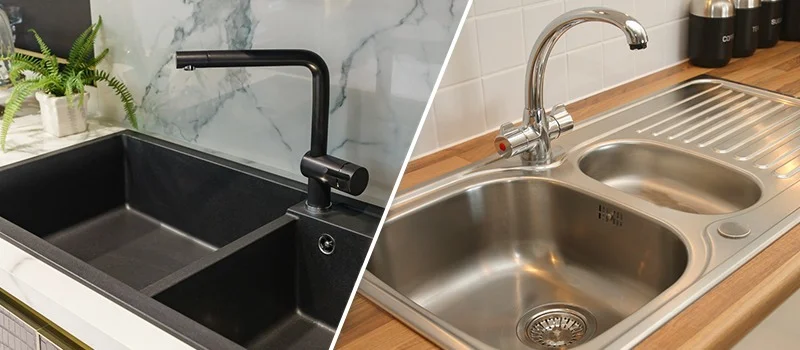
On the other hand, stainless steel sinks are way cheaper because their making process is not that complicated. It is a tough and relatively inexpensive metal well used for sinks. Its toughness, resistance to corrosion, and ease of cleaning enable the material to be relatively cheap for many homes. While the stainless steel sinks come in a range of finishes and gauges, they tend to be less expensive than quartz sinks, making stainless steel a more pragmatic or affordable choice for most property owners today.
Are Quartz Sinks Better than Stainless Steel Sinks?
Again, this is a matter of opinion that all depends on who needs what most.
Your Needs in the Kitchen
Think about what you need from your sink day in, day out, based on your daily kitchen tasks. If style and noise control are big concerns for you, quartz sinks have the advantage. Otherwise, budget, durability, and versatility make stainless steel sinks the better choice.
Balancing Style and Functionality
Ultimately, both sinks represent a compromise between style and functionality. The choice between the two will depend on your lifestyle, design preference, or budget constraints. As you explore these factors, you'll make a fitting choice that best suits your kitchen experience.
Personal Preferences
Remember, there is no one-size-fits-all. Some owners immediately fall in love with the luxurious look of quartz, while others enjoy the classic look of stainless steel. Get to know each option and select the type of sink that best suits your needs.
When to Choose a Quartz Sink
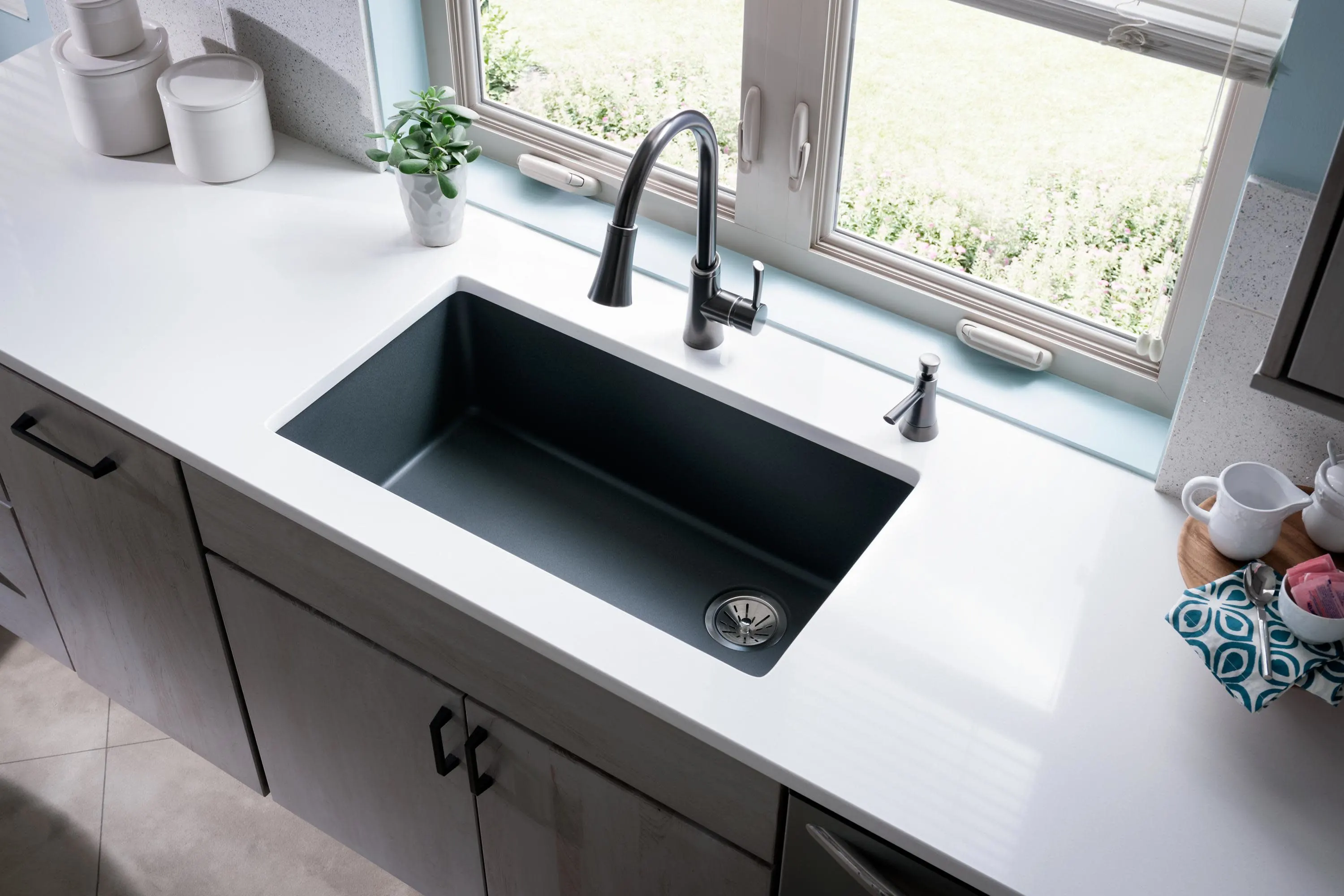
-
You want a sink that will work well with a modern, upscale, or minimalist kitchen style.
-
Noise level in your kitchen area is an issue.
-
You want a low-maintenance choice that is resistant to stains and scratches.
-
Your budget allows for an upfront investment in a high-end look.
When to Choose a Stainless Steel Sink
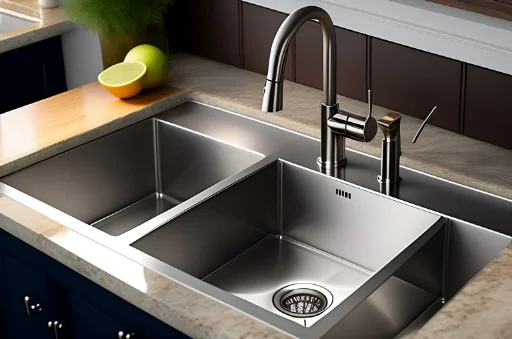
-
You are in need of a durable and budget-friendly option that fits most kitchen styles.
-
Your kitchen sees high usage, and ease of cleaning is a priority.
-
You are looking for a rust- and heat-resistant option that's sturdy enough to handle daily wear.
-
Noise isn’t a primary concern, or you’re willing to invest in a model with sound-dampening pads.
FAQs
1. Are Quartz Sinks Better than Stainless Steel Sinks?
Quartz sinks are more luxurious and durable but cost more, while stainless steel sinks are affordable, easy to maintain, but may scratch and stain more easily.
2. Are quartz sinks more durable than stainless steel?
Quartz sinks are highly durable and resist scratches and chipping, but stainless steel is more resistant to denting. Both are durable, but each offers different advantages depending on usage.
3. Do quartz sinks stain easily?
No, quartz sinks are non-porous and highly stain-resistant. Simple soap and water clean-up is typically sufficient.
4. Is stainless steel more budget-friendly than quartz?
Yes, stainless steel sinks are generally more affordable than quartz and offer good value for homeowners looking for a durable sink at a lower cost.
5. Which sink type is quieter?
Quartz sinks naturally reduce noise due to their dense structure, while stainless steel sinks can be noisier. However, sound-dampening pads can help reduce noise in stainless steel models.
6. Do quartz sinks come in different colors?
Yes, quartz sinks are available in a wide variety of colors and finishes, which can complement modern kitchen designs.
Conclusion
Quartz and stainless steel sinks each offer distinct benefits, making them suitable for different kitchen styles and budgets. Quartz sinks provide a premium look with excellent durability and quiet performance, ideal for those willing to invest a bit more for a high-end appearance. Stainless steel sinks, on the other hand, are affordable, versatile, and resilient, making them a practical choice for many households. Ultimately, the right sink choice depends on your kitchen’s needs, style, and how much maintenance you’re prepared to undertake.

